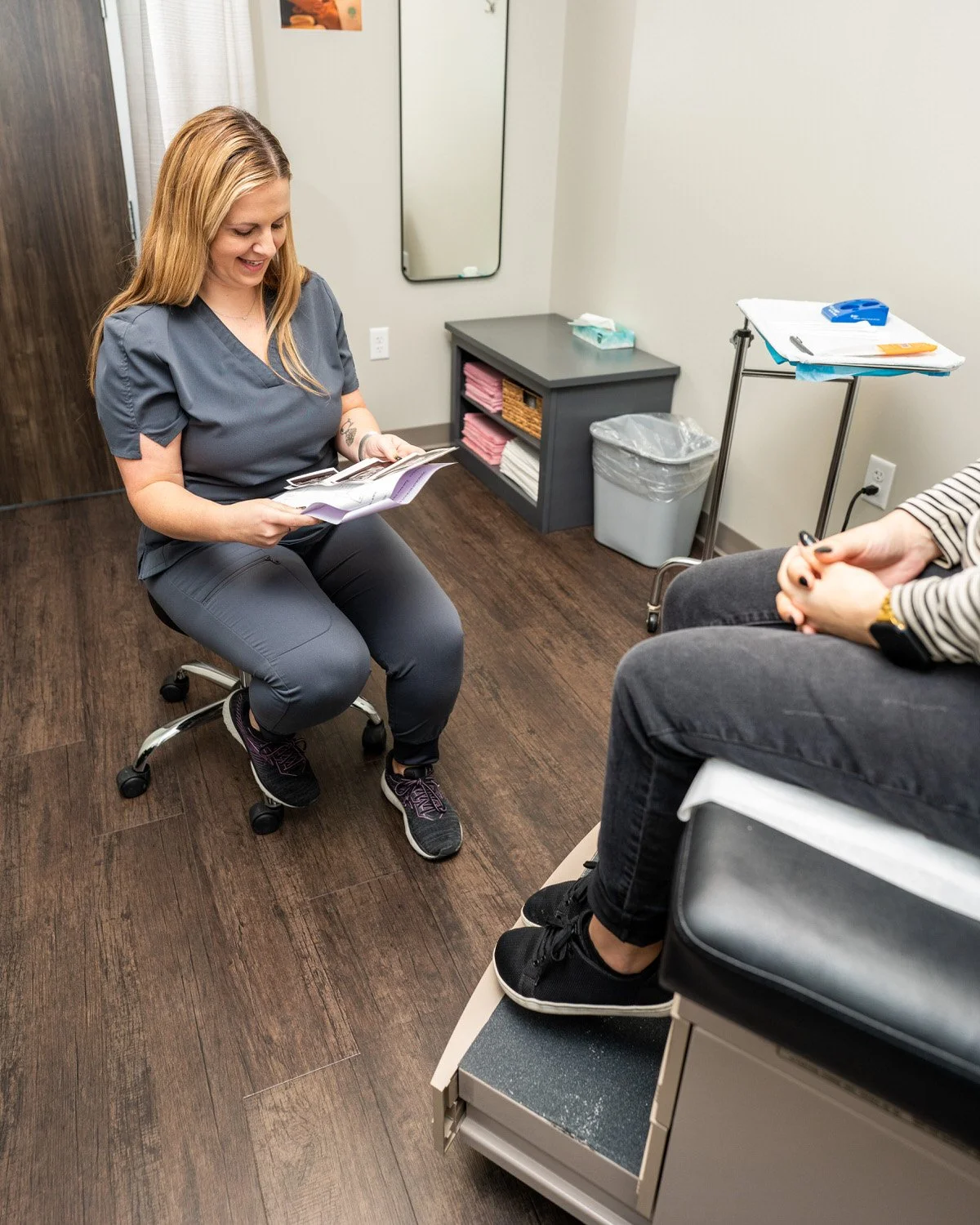Menopause
Willow OBGYN
Obstetrics & Gynecology located in San Antonio, TX
Every woman goes through menopause, but you don’t have to endure the uncomfortable symptoms that often accompany this life transition. Skilled OB/GYN Kelly Morales, MD helps women prepare for and cope with menopause symptoms at her private practice in San Antonio. If you’re going through or getting ready for menopause, call or book an appointment online with the office today.
Don’t worry about sounding professional. Sound like you. There are over 1.5 billion websites out there, but your story is what’s going to separate this one from the rest. If you read the words back and don’t hear your own voice in your head, that’s a good sign you still have more work to do.
Be clear, be confident and don’t overthink it. The beauty of your story is that it’s going to continue to evolve and your site can evolve with it. Your goal should be to make it feel right for right now. Later will take care of itself. It always does.
Menopause Q & A
What is menopause?
Menopause is the time in your life when your menstrual cycles naturally come to an end. After menopause, you no longer ovulate, get your period, or have the ability to become pregnant.
You officially reach menopause once you’ve gone 12 months without a menstrual period, but you may experience a number of symptoms in the years leading up to it.
The transitional phase before menopause is called perimenopause. During perimenopause, fluctuations in your hormone levels can cause symptoms and noticeable changes in your body.
When does menopause happen?
Most women reach menopause between the ages of 45 and 58, with 52 being the average age in the United States. It’s common to go through menopause at around the same age your mother did.
Perimenopause usually begins in your mid- to late 40s and can last anywhere from two to eight years. Most women spend about four years in this transitional stage before reaching menopause.
What are the symptoms of menopause?
The changes many women experience occur during perimenopause, but it’s more common to hear them referred to as menopausal symptoms. While your body prepares to stop its menstrual cycles, your hormone levels rise and fall unpredictably.
This hormone imbalance leads to many of the symptoms women experience before menopause. Every woman experiences menopause differently, but you’ll probably notice some common signs and symptoms, such as:
Irregular periods that may skip months
Lighter or heavier periods
Hot flashes or night sweats
Difficulty sleeping (insomnia)
Mood swings
Irritability
Difficulty concentrating
Vaginal dryness
Painful sex
Decreased desire for sex
Why should I continue seeing an OB/GYN after menopause?
Even though your menstrual cycles are over, it’s important to continue seeing Dr. Morales for routine gynecological care. Menopause increases your risk of several medical conditions, such as:
Heart disease
Osteoporosis
Urinary incontinence
Sexual dysfunction
Weight gain
Not only can Dr. Morales work with you to prevent the potentially dangerous complications of menopause; she offers treatments to help you cope with the symptoms of perimenopause. Depending on your unique situation, treatment may include:
Counseling on lifestyle changes like diet and exercise
Hormone replacement therapy
Nonsurgical vaginal rejuvenation with Votiva
Medications to treat or prevent osteoporosis or high blood pressure
If you’re looking for a professional and caring OB/GYN to guide you through the process of menopause, call or book an appointment online with Dr. Morales’ office today.
““Dr. Morales was wonderful throughout my pregnancy, birth, and postpartum care. I never felt rushed or unheard during my prenatal visits, she took the time to answer all of my questions and explain things in detail. During birth she was very comforting throughout the entire process and felt safe for me and my baby. Her staff is also very helpful. I highly recommend Dr. Morales!””

















